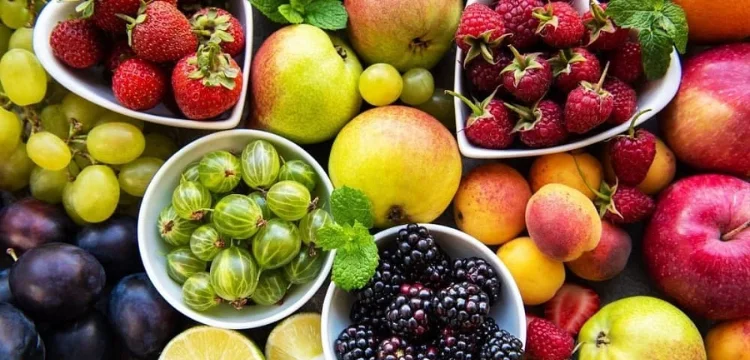Fruit can indeed play a significant role in maintaining a healthy body weight due to several factors, including their fiber content, low calorie density, and various nutrients that support overall health. Here’s a closer look at how different fruits can contribute to weight loss and considerations for incorporating them into a balanced diet:
Benefits of Fruit for Weight Loss:
- Fiber Content: Most fruits are rich in dietary fiber, which helps in promoting satiety (feeling of fullness) and reducing overall calorie intake. Soluble fiber, found in fruits like apples and pears, forms a gel-like substance in the digestive tract that slows down digestion and prolongs the feeling of fullness.
- Low Calorie Density: Fruits are typically low in calories compared to many other snack options. For example, a large apple contains about 95 calories, while providing fiber and essential nutrients.
- Nutrient Density: Fruits are packed with essential vitamins, minerals, and antioxidants, which support overall health and well-being. These nutrients are vital for maintaining energy levels and metabolic health during weight loss.
Top Fruits for Weight Loss:
Here’s a summary of some fruits known for their weight-loss friendly properties:
- Apples: Rich in fiber, especially soluble fiber, which helps manage appetite and reduce calorie intake.
- Blueberries: High in antioxidants, which may help with weight management by reducing inflammation and supporting metabolic health.
- Watermelon: Contains high water content, aiding in hydration and promoting feelings of fullness with fewer calories.
- Avocado: Although higher in calories due to its fat content, avocados can contribute to satiety and reduce hunger.
- Cherries: Provide fiber and polyphenols that support weight management and improve sleep quality.
- Kiwi: Helps improve sleep quality, which is crucial for weight management.
- Grapefruit: Known for its potential to aid weight loss, possibly due to its effects on metabolism and appetite.
- Mango: Provides fiber and essential nutrients, supporting a balanced diet and weight management.
- Raspberries: High in fiber and polyphenols, promoting fullness and supporting a healthy gut microbiome.
- Oranges: High in vitamin C and fiber, aiding in weight loss and overall health.
- Bananas: Rich in resistant starch when less ripe, promoting fullness and supporting gut health.
- Pears: High in fiber, which promotes fullness and supports weight loss efforts.
- Pomegranates: Rich in fiber and antioxidants, which may aid in fat breakdown and weight management.
- Blackberries: High in fiber, promoting fullness and aiding in weight management.
- Dates: Despite their sweetness, they offer fiber and nutrients, serving as a healthier alternative to processed sweets.
Considerations:
- Portion Control: While fruits are nutritious, overconsumption can lead to exceeding calorie needs, which may hinder weight loss goals.
- Dried Fruit and Fruit Juices: These can be calorie-dense and lack the fiber content of fresh fruits, so moderation is key.
- Balance and Variety: Incorporate a variety of fruits into your diet to ensure you receive a range of nutrients and maximize health benefits.
Conclusion:
Fruits are valuable components of a weight loss diet due to their fiber content, low calorie density, and nutrient profile. Including a variety of fruits in moderation can help support satiety, promote overall health, and aid in weight management when combined with a balanced diet and healthy lifestyle habits.











